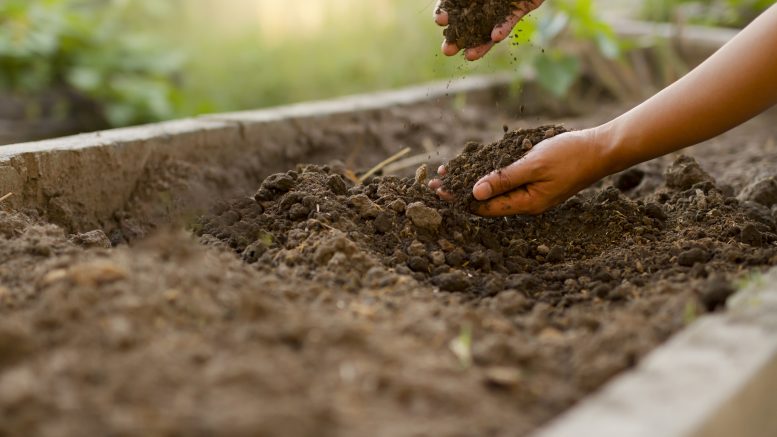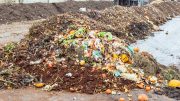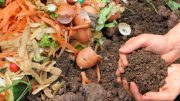How companies are turning organic waste into marketable products
By now Californians have gotten used to separating their trash and recyclables: tossing their bottles and cans in one bin and trash in another. And now we are learning to put leftover pizza, grass clippings and other organic waste into a third bin. But many people may be surprised to learn just how companies are turning that organic waste into a myriad of clever, marketable products that help to lower greenhouse gas emissions and limit climate change.
Organic waste is material that originated from living things like plants and animals. Examples include food, landscape clippings, leaves, wood, lumber and paper. Although these materials came from living organisms and are renewable resources, organic waste can impact climate if left to rot in landfills.
“If not collected and turned into value-added products, organic waste would go to landfills and directly contribute to greenhouse gas emissions—especially methane, which is 30 to 100 times more potent than carbon dioxide,” says Si Gao, Ph.D., assistant professor of environmental studies at Sacramento State University.
To combat climate change, a California law, SB 1383, requires cities and counties to provide services for organic waste collection for residents and businesses and utilize facilities and technologies that can turn those organic materials into marketable products, such as soil amendments for farmers and gardeners.
“Educating the general public … is a necessary step to ensure a sustainable future.”
Si Gao, Ph.D., Assistant Professor of Environmental Studies, Sacramento State University
To combat climate change, a California law, SB 1383, requires cities and counties to provide services for organic waste collection for residents and businesses and utilize facilities and technologies that can turn those organic materials into marketable products, such as soil amendments for farmers and gardeners.
Compost
Specialized factories can turn food waste into nutrient-rich compost. Compost is a great soil amendment that can be used in places like home gardens, city parks and farmlands to improve soil carbon storage, provide nutrients or serve as organic fertilizer to benefit soil health, Gao says.
One composting initiative is the BACYard program at Sac State. The university’s Office of Sustainability operates a small-scale composting system in which campus food waste and tree leaves are collected, and turned into compost that is used in a campus garden that grows food that then is eventually transported to the campus food pantry. “We also donate compost to local community gardens, urban farms, and school gardens,” Gao says.
Mulches, Barks and Soil Blends
“Garden waste can also be physically broken down and turned into mulch,” Gao says. Mulch can be spread over soil to keep prevent weeds from growing and maintain productive soil properties.
Organic barks, on the other hand, are made from tree bark, and the material is typically used as ground covering for pathways and playgrounds. Organic materials used to make mulches and barks can include leaves, grass clippings, newspaper and wood chips.
Renewable Energy and Improved Soil Conditions
Gao says lumber and wood waste can also be converted to produce heat and energy using a variety of methods such as pyrolysis, which is the heating of biomass under high temperature and high pressure without oxygen. During this bioenergy production process, biochar is produced as a secondary product. Biochar is a carbon-rich, porous product that is widely proved to be an effective soil amendment that has various benefits for agricultural systems.
Over the past few years, Gao’s research has shown that adding wood biochar to sandy agricultural soils on small farms could significantly improve soil conditions leading to increased crop yields
Gao says education is the key to changing attitudes about making the effort to sort your trash, so people better understand the harmsthat organic waste in landfills can cause, as well as the benefits of turning that waste instead into marketable products.
“Overall, I believe helping communities clearly understand why and how organic waste management matters, and why and how not managing organic waste could harm their environment and their health, would be something I can do as an educator,” Gao says. “Educating the general public … is a necessary step to ensure a sustainable future.”
For more information about organic recycling in the city of Elk Grove, go to www.elkgrovecity.org/recycling-and-waste/organic-recycling.






























